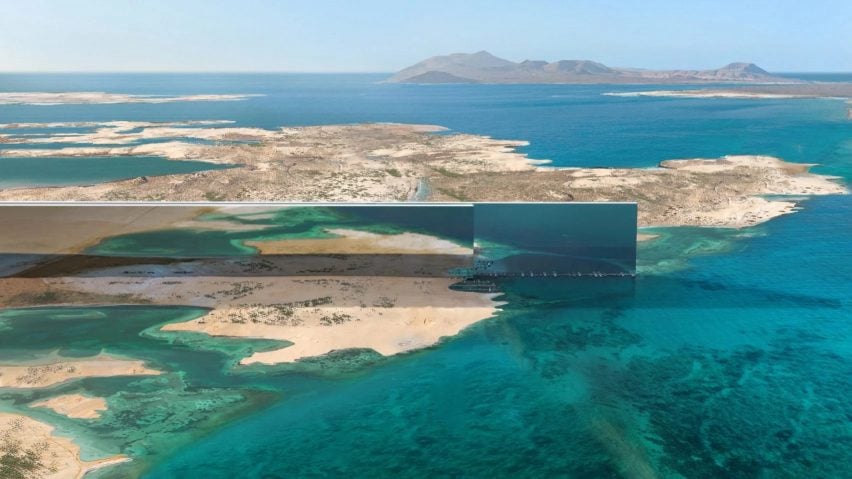This week on Dezeen, we covered reports that Saudi Arabia cleared its forces to use "lethal force" to remove people from villages ahead of The Line megacity as part of Neom.
We reported that the BBC spoke to Colonel Rabih Alenezi, who told the British media organisation that ahead of the development of The Line in northwest Saudi Arabia, he was part of the team ordered to evict people from villages near the site.
"Whoever continues to resist [eviction] should be killed, so it licensed the use of lethal force against whoever stayed in their home," Alenezi told the BBC.
In design news, sportswear brand Nike revealed that it is developing its own generative artificial intelligence (AI) model as the start of a plan to create an AI "private garden".
The AI model would be a bespoke large language model (LLM) that would use data collected by the brand, including performance data from athletes and its laboratories, to design new Nike products.
Also this week, technology company Apple was forced to issue an apology for its iPad Pro advert, which depicted creative tools including a piano, a typewriter and oil colours being crushed.
"We missed the mark with this video, and we're sorry," said Apple's vice president of marketing Tor Myhren.
The ad, which was unveiled earlier this week, was roundly criticised online by creatives who called the company "out of touch".
"This ad perfectly encapsulates the insight that people think technology is killing everything we ever found joy in – and then presents that as a good thing," wrote Wall Street Journal reporter Katie Deighton.
The theme of the 2025 Venice Architecture Biennale was revealed this week by architect Carlo Ratti and president of the Venice Architecture Biennale Pietrangelo Buttafuoco as Intelligens Natural Artificial Collective.
The biennale will aim to explore new technologies to challenge the built environment's position as "one of the largest contributors to atmospheric emissions".
Ratti also unveiled a proposal for a new bridge to replace the Francis Scott Key Bridge in Baltimore that collapsed in March. His design would be a cable-stayed bridge with a main span of 2,230 feet (700 metres).
Dezeen opinion pieces created debate this week, with Phineas Harper arguing that architects should acknowledge that the profession is no longer a guaranteed route to prosperity and unionise.
His piece asked "Why do so many architects think they are more privileged than they really are?"
In an opinion looking at the lack of diversity at Milan design week, Dezeen editor-at-large Amy Frearson found that "it has become near impossible for an unproven talent to get a foot in the door".
The "playing it safe" formula that became a theme during the pandemic has made brands reluctant to take a chance on unknown names, she argued.
In architecture news this week, the Kunstsilo art gallery opened in Kristiansand, Norway. Located inside the shell of a 1930s grain silo, the gallery was designed by Barcelona studios Mestres Wåge Arquitectes, BAX and Mendoza Partida.
It houses the world's largest private collection of modern Nordic art. To fit the artworks, the studios carved out the interior of the 37-metre-tall silo to create a grand, "basilica-like" atrium and circulation core.
Popular projects this week include a Rolex boutique in Toronto with a limestone facade, a London house with a concrete extension and a hotel in Tokyo with cut-out balconies and terraces.
Our latest lookbooks featured homes with internal windows to maximise light and a collection of 10 kitchen design ideas.
This week on Dezeen
This week on Dezeen is our regular roundup of the week's top news stories. Subscribe to our newsletters to be sure you don't miss anything.

